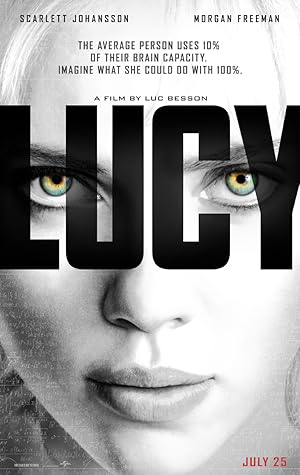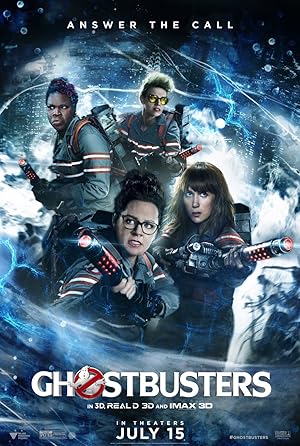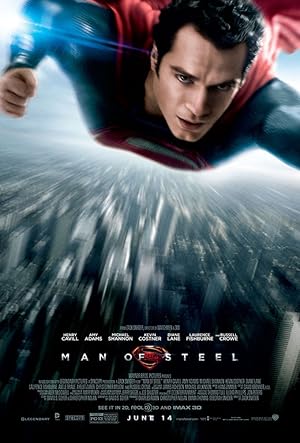Movie Discussion: Lucy
Warning! This entire discussion contains spoilers for Lucy.

A woman, accidentally caught in a dark deal, turns the tables on her captors and transforms into a merciless warrior evolved beyond human logic.
Genre: Action, Sci-Fi, Thriller
Director: Luc Besson
Writer: Luc Besson
Actors: Scarlett Johansson, Morgan Freeman, Choi Min-sik, Amr Waked
Release Year: 2014

Scott Hardie | July 25, 2014
This wasn't *as* dumb as I feared. Some of my questions above were answered implicitly or explicitly: The criminals didn't take the super-drug themselves because they didn't know that it was capable of this. The drug was engineered as a powerful street drug, and the explanation of its origin is as ridiculous as anything else in the film, but at least it had an explanation. I still don't know how the criminals progressed enough in their work on the drug to synthesize four huge packets without discovering its brain-unlocking potential, and I don't know why they bothered to employ surgically-implanted drug mules when there couldn't possibly be a law yet against transporting this newly-invented synthetic drug, but I can accept the movie's premise. As for other problems, like how Lucy walked through a busy hospital holding a big pistol and no one noticed, or how the criminals unpacked and loaded assault rifles and other large guns right in front of a squad of police in the same shot and the police never noticed, but whatever. Stupid comes with the price of admission in some movies.
I don't feel like dwelling at length on the central problem of this super-drug's existence and what a Pandora's box it represents in the story, but the problem is notable as far as I'm concerned. This is a street drug that can make you travel through space and time, alter physical laws like gravity and motion, and disintegrate and reassemble your body atomically. All of these things are impossible in reality as we know it, which means that reality in the film must be something like in The Matrix, a plane of existence where the fundamental rules are different. The movie has an opportunity to address this directly when it goes cosmic in its final minutes, as a means of justifying its own silliness to some extent, but if that happened I missed it. The movie very abruptly ends after Lucy apparently acquires all knowledge in the universe and the main bad guy gets shot dead, two events that seem starkly out of proportion to each other in importance.
Speaking of the crime subplot, did it really matter after a while? Once Lucy has the drug in her bloodstream, the movie has no further narrative need for the criminal syndicate, but they keep popping up to shoot at her. It reminds me of that run of lousy movies in the 1980s like Three Men and a Baby that would shoehorn in a subplot about drug smugglers or jewel thieves or something into a movie that utterly does not need them, I guess because it's the best that lazy screenwriters could invent for conflict. To justify its expense, this movie has to appeal to an international audience, and that requires a certain amount of gunfire and action that the criminals provide, but to ask us to care which interchangeable henchman gets shot first in the hallway outside while Lucy is busy traveling to the origin of the planet and ultimately the universe inside the science lab is to misjudge our priorities as an audience. Min-sik Choi remains a badass after Oldboy and brings that intensity to his chief villain here, but the character is ultimately meaningless. The movie is only ninety minutes with closing credits, and would feel even slighter without gunfights and other throwaway business involving the criminals, but underdevelopment is a problem that plagues the whole movie and it's bigger than just this point.
Best line overheard after I exited the movie with friends, with the ridiculous ending still on our minds: "And that's the story of how Google was invented." I have to say, I'm amused that the movie ended with Scarlett Johansson turning herself into a computer, since she just played a computer in another movie this year. Someone could edit together a smashup of the two films.
I guess it's a sign of a good movie that it left me wanting more. I'd had enough of the boring criminals, thank you, and the French cops too for that matter. But the central idea offered so many intriguing possibilities that I wanted to explore them further, impossibility be damned. The movie demonstrates considerable imagination to have taken Lucy on the journey that it does, especially in the epic final minutes, but it lacks the willingness to go a step further and explain what the contents of the thumb drive mean for humanity. I can imagine a dozen different epilogues for the human race, everything from a utopian brotherhood out of John Lennon's "Imagine," to Morgan Freeman's character ultimately deciding to destroy the thumb drive because the actions of the syndicate convinced him that humanity would abuse such information. Anything would have been preferable to a smash-cut to black. But even leaving aside the ending, I wanted to slow down the whole movie and spend more time on Lucy's development and explore other storytelling possibilities at each stage of her progress, instead of whizzing past them like scenery in a Hollywood car chase. Here's giving the movie credit for getting me thinking about its ideas, at least.
Am I being too hard on the film? Is it smarter than most summer blockbusters? Or is it so fun that who cares if it doesn't make sense?

Scott Hardie | July 27, 2014
The Atlantic ran a 26-point breakdown of everything wrong with Lucy. Now that's a thorough movie review.
Want to join the discussion? Log in or register to reply.
Similar Movie Discussions

Captain America: The Winter Soldier
another installment in Marvel's militaristic franchise Go »
Avengers: Age of Ultron
another Marvel superhero team-up Go »
Avengers: Infinity War
the ultimate Marvel Cinematic Universe crossover film Go »
Ghostbusters
a new take on the beloved scifi-horror-comedy Go »
Skyfall
the third James Bond film starring Daniel Craig Go »Furious 7
an over-the-top spectacle in the long-running action series Go »
Iron Man Three
Marvel's first post-Avengers superhero adventure Go »
Captain America: Civil War
Marvel's superhero showdown Go »
Avengers: Endgame
the conclusion to the first decade of the Marvel Cinematic Universe Go »
The Dark Knight Rises
the tense ending to Christopher Nolan's Batman trilogy Go »
Man of Steel
a bold new version of the Superman film series Go »
The Hobbit: An Unexpected Journey
a new J.R.R. Tolkien adaptation from Peter Jackson Go »











Scott Hardie | July 4, 2014
This movie looks so insanely bad. Maybe it's not, maybe it's just dumb fun; I'll see it sooner or later and find out.
Where do I begin?
The idea that we only use 10% of our brain has been debunked many times and is hard to take seriously in the first place. So if it were true, and we could tap into the potential other 90%, is the movie suggesting that this would allow us to change our hair color at will, and make people around us pass out, and read streams of data passing between cell phone and satellite, and other ridiculous feats portrayed in the trailer? That's to say nothing of the cliches that movies like this repeat, like the character learning new languages in minutes or speed-reading many windows of text at once.
The main character is forced against her will to be a drug mule when the drug is surgically implanted inside her. It then ruptures when they kick her, unleashing some of the drug into her bloodstream. So a tiny dose of this drug is enough to make her some kind of psychic demi-god? What the fuck kind of drug is this, and who is its intended consumer? How much would someone pay for that kind of drug? Why do the criminals not just take the drug themselves and rule the planet as its overlords? Why would the existence of such a drug not immediately transform the planet for the better or worse? Nations would go to war over a miniscule supply. A few people on the drug could conquer every army and intelligence agency on Earth.
Am I supposed to ignore what seem like pretty obvious questions and just enjoy scenes of Scarlett Johansson beating people up? Because the racist and misogynist (faux-feminist) subtexts of the movie are risible, as is the idea that the protagonist's appropriate response to the scenario should be violence. The best thing that I can say for this probably very shitty movie is that it feels as close as we're going to get to the Black Widow solo film that Marvel Studios really needs to make. Maybe I'll turn my brain off and pretend that it's that.